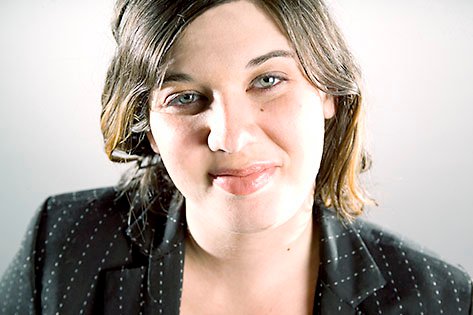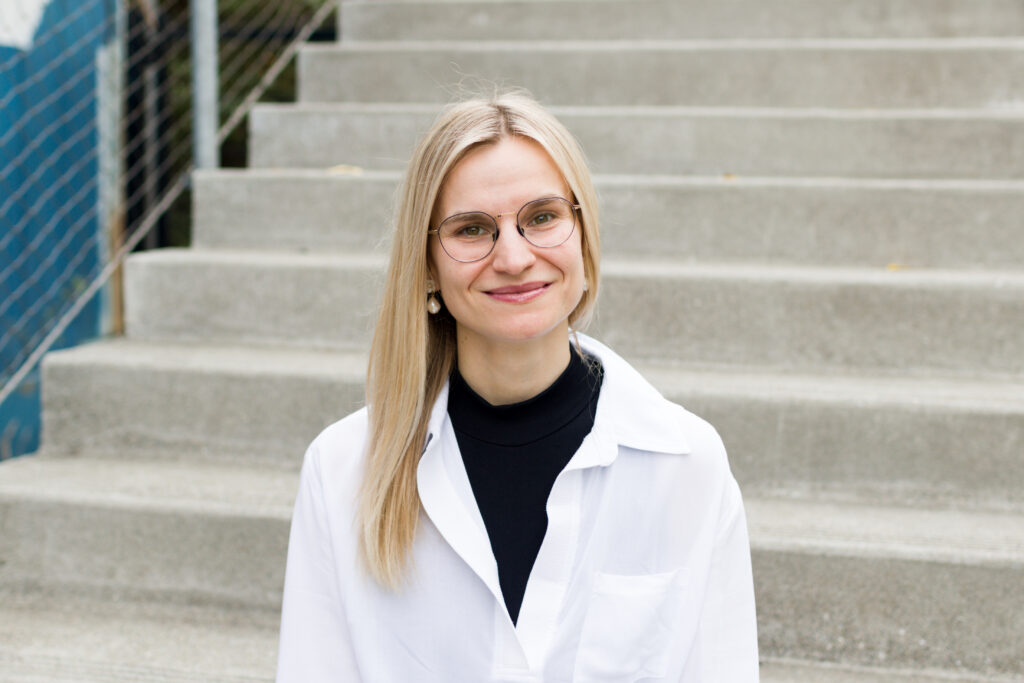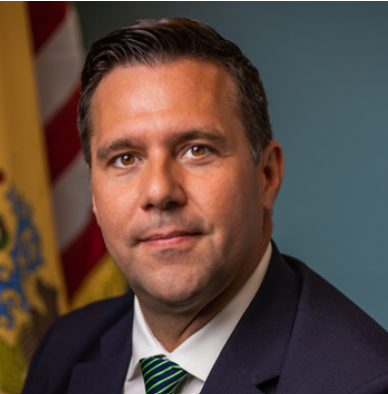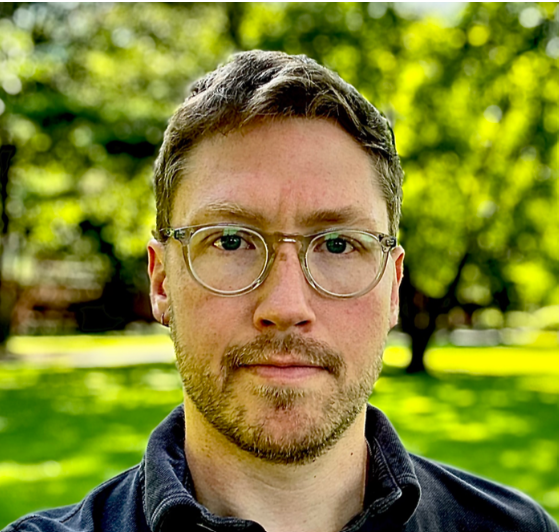Main Content
Human Ecology Welcomes Two Professors and Four Lecturers for Fall 2025.
The Department of Human Ecology is excited to have many great researchers and teachers joining us this fall semester. We welcome Dr. Jenny Isaacs to her new role as Assistant Teaching Professor, Dr. Kasia Klasa as an Assistant Professor, and lecturers Dave Howland, Ed Potosnak, Meishka Mitchell, and Samuel Tabory.

In the role of Assistant Teaching Professor, Dr. Jenny Isaacs joins the Department of Human Ecology and will be teaching Introduction to Environmental Policy Institutions and Behavior (11:374:101; formerly Introduction to Human Ecology) and Theory and Reasoning in Human Environment Interactions (11:374:110).
Dr. Isaac’s research and teaching are positioned at the intersection of nature, techno-science, and politics. She is a political ecologist and animal geographer who critically studies the science and politics of biodiversity conservation and wildlife management, across borders, cultures, space, and scale. Her recent conservation research focuses on controversial state campaigns and technologies to manage endangered, migratory, highly mobile, nuisance, and invasive species. Dr. Isaacs completed her Ph.D. in Geography at Rutgers University, her M.A. in Sustainability Studies at Ramapo College, and earned a B.A. in English and a B.M. from the University of Massachusetts Amherst. At Rutgers, Dr. Isaacs coordinates student participation in bison conservation outside Yellowstone Park for the Buffalo Field Campaign, and she places coastal environmental management volunteers with the Conserve Wildlife Foundation of New Jersey, the NJ DEP Conservation Corps, and more and can’t wait to work to connect Human Ecology students with new opportunities in the environmental field.
With our two latest faculty hires, the Department of Human Ecology has expanded its social science depth in the fields of Political Science and Geography while strengthening our topical teaching and research in the areas of biodiversity, wildlife, disasters, health, and emergency management. Both hires are well-suited to contribute in a number of ways to our department-wide focus on sustainability and resilience.”
Dr. Rachael Shwom, Chair of Department of Human Ecology
Dr. Kasia Klasa is also joining the Department as a tenure-track Assistant Professor in Disaster, Health and Sustainability Governance. Dr. Klasa earned her Ph.D. in Health Services Organization and Policy, as well as her MPH, from the University of Michigan. She received both her BSN from the Nursing School and her BS from the Wharton School at the University of Pennsylvania. She will be guest lecturing in a few Human Ecology classes this fall and will teach Politics of Environmental Issues (11:374:279) this spring.
Dr. Klasa is both a health policy researcher and a political scientist who studies the politics of disasters and public health emergencies, and crisis governance. Her research broadly falls into three areas: the intersection of public health and emergency management, resilience and risk governance, and public health policy and politics.

Dr. Klasa’s work focuses on understanding how political institutions shape and impact public health and sustainable systems, as well as how governance and institutions can be made resilient in the face of systemic shocks, crises, and uncertainty. She is specifically interested in using mixed methods to study the consequences of federalism and subnational (state and local) politics on disaster and public health emergency response, recovery, and preparedness to develop effective policies and resilient communities. Dr. Klasa has worked with the Risk and Decision Science Team within the US Army Engineer Research and Development Center (Environmental Lab) as well as an ORISE Fellow in the Center for Engineering for Public Health and Human Factors. She has also collaborated with the European Observatory on Health Systems and Policies and the World Health Organization. Prior to academia, she worked as a registered nurse in surgical nursing and public health nursing.
In addition to the two new professor hires, four lecturers will join the Department of Human Ecology to teach classes Fall 2025.

Meishka Mitchell will be teaching Environmental Justice (11:374:250) this fall. Meishka L. Mitchell, AICP, PP, is President & CEO of Emerald Cities Collaborative, a national nonprofit that advances racial, economic, and climate justice to build communities that are more equitable, economically just, and sustainable. Meishka has over 20 years of visionary leadership experience in climate justice and equitable and inclusive neighborhood development.
Meishka has led efforts to address water equity, illegal dumping, air quality, brownfields redevelopment, and green energy with a focus on community education and engagement. She is committed to the expansion of the term “environment” to be inclusive of urban environments and BIPOC communities. Meishka has a Master of City Planning from the University of Pennsylvania, is certified by the American Institute of Certified Planners, and maintains a Professional Planners license with the State of New Jersey, where she lives with her family.
Dr. David Howland will be teaching Storytelling about Science (11:374:310) this fall. Dr. Howland has been writing and editing for most of his life: in academia, the news media, and politics. After teaching composition for a dozen years at the University of New Hampshire, he joined the Rutgers Writing Program in Fall 2018. A former news reporter in California and with The Associated Press in Boston, Dave has a doctorate in Environmental Studies. As a grad student, he TA’d wildlife ecology classes and developed an approach to understanding the evolution of messy policy debates by mapping arguments and trends in the popular press. He loves to cook, hike, play music, climb trees, and hang out with his German Shepherds.


Ed Potosnak will be teaching Careers in Environmental Policy (11:374:280) and is the Executive Director of New Jersey League of Conservation Voters where he ensures the organizations are well staffed, resourced, and focused on advancing the mission to hold elected officials accountable to protect and preserve New Jersey natural resources. Building on his experience on Capitol Hill, he applies his environmental, public policy, and government affairs expertise to advancing bold pro- conservation protections in New Jersey by passing laws and regulations to protect our environment. Born and raised in New Jersey, Ed grew up fishing, swimming and boating in the waters of the Garden State.
Dr. Samuel Tabory will be teaching Globalization, Development and Environment (11:374:305) this fall. Sam is the Global Research Lead for CORE (Collaborating for Resilience) and is working to build compelling and rigorous bases of policy evidence around nonlinear systems change for inclusive natural resource governance across scales. Trained as a regional planner, Sam is an environmental governance specialist who cares deeply about the daily politics and negotiation of pursuing environmental governance innovation. His professional interests lie at the intersection of leveraging research to advance grounded action, multi-level partnerships, policy dialogue, and coalition building for just and equitable climate and resource transitions globally.

Prior to joining CoRe, Sam worked as a governance advisor to a landscape-scale restoration and livelihood initiative in central Mexico (with funding from UK PACT Mexico), as a research manager for science-policy engagement with a Sustainability Research Network supported by the US National Science Foundation, and as a research associate at the Chicago Council on Global Affairs. Sam holds a PhD in Urban and Regional Planning from the Harvard Graduate School of Design as well as dual MA/MS degrees in Latin American Studies and Community & Regional Planning from the University of Texas at Austin.